Listen to this article
Listen to this article
Loading
Play
Pause
Options
0:00
-:--
1x
Playback Speed- 0.5
- 0.6
- 0.7
- 0.8
- 0.9
- 1
- 1.1
- 1.2
- 1.3
- 1.5
- 2
Audio Language
- English
- French
- German
- Italian
- Spanish
Open text
san francisco’s harbor light center. envoy jack clitheroe at the harbor light detox gate, the first point of entry to recovery. a beacon of hope in the city. the salvation army’s san fransisco harbor light center provides comprehensive alcohol and chemical dependency treatment for men, women, families and veterans through progressive care, education, workforce development and personal growth. “serving persons with a variety of social and spiritual afflictions for over 100 years, the harbor light program is a model residential adult rehabilitation program for those suffering from addiction to alcohol and drugs,” said dr. david pating, who is in charge of the kaiser permanente department that refers clients to the center. he was recently awarded the david lawrence community service award for exemplary service and efforts to improve the health of the community and is donating the award’s cash prize to harbor light. “their heart-felt warmth and nuturance provide opportunity for our clients and others to be ‘habilitated,’ receiving nurturing for the first time in their lives through the power of the ministry of service,” pating said. “countless times i have referred clients to this program who failed [other programs] and were deemed ‘hopeless’—equally as often, this program has made the difference in turning failure into success. their formula is simple, never give up! and it shows.”. envoy jack clitheroe, executive director of the harbor light center, oversees three distinct units: harbor light, harbor house, and the lighthouse corps. the center’s current licensed capacity is 219 (including 31 in childcare), with plans to add 20-22 beds within the next year. first, the harbor light program, led by stephanie hall, offers single men and women a licensed residential recovery program of up to two years in length. its sub-unit, harbor light detox serves single men and women for up to 90 days. clitheroe said the alcoholics and drug addicts who walk through the front door are usually in desperate shape both spiritually and physically. while in residence, clients receive the nourishment they need to allow a focus on transformation and lasting recovery. the staff partners with organic vendors, local farmers, the san francisco food bank, foodrunners and feed the bay to give harbor light clients the chance to fall in love with tasty greens, sugar-free cereals, wholesome breads, baked goods, nuts, fresh fruit and vegetables, whole grains, lean meat, juices and herbal teas. harbor light dining room second, harbor house, led by marcy orosco, serves single-parent households, providing a licensed residential recovery program and a re-entry phase, for up to two years. within it, harbor house childcare is licensed to care for up to 31 children—infants, toddlers and preschoolers. in 2011, the “gateway to quality” team inspected the harbor house childcare facility using the infant toddler environmental rating scale (iters) and early childhood environmental rating scale (ecers)—a rigorous, comprehensive examination. the program scored so well that it became eligible for increased local grant funding. it recently received a grant to build a garden, which the children care for and watch as the plants grow. third, the lighthouse corps, led by envoy roger mccort and corps assistant trey hiller, offers residents and neighbors a spiritual home. in its homeless street outreach program, volunteers roam the local streets three nights a week to distribute food, blankets and friendship to some of san francisco’s most destitute and forgotten residents: the homeless alcoholics and drug addicts, prostitutes and the mentally ill people living on the streets. “we also find parents with little children—families that have run out of options,” said shawne bradley, harbor light food services manager. “we take our well-equipped mobile canteen, filled with food we cooked in our kitchen, and drive to some of the tougher neighborhoods. we go to places that most people avoid so we can serve healthy hot meals, bread, fruit, coffee and water to those in need. this is some of the most rewarding and inspiring work i do.”. in 2011, roughly 1,100 volunteers donated 8,800 hours to deliver over 85,000 sandwiches and hot meals, 14,541 items of clothing, and 10,061 comfort kits and gifts. on sundays, the lighthouse corps’ total attendance in 2011 reached 3,247 individuals, many of whom are residents of the harbor light center and the nearby adult rehabilitation center. in addition to sunday services, mccort and hiller offer weekly bible studies, soldiership classes and christian-based recovery meetings. corps youth programs are also growing. aided by volunteers from the salvation army’s bayview center, a neighborhood outreach at hunters point and led by jen arens, corps staff worked with 50 children last year. once a week, arens coordinates activities for for elementary-age children who live with their parents at harbor house. the hard work and generosity of harbor light center’s community partners and volunteers play a major role in the center’s success. over 70 local companies and volunteers, including rodan + fields prescription for change foundation and the department of veterans affairs, supported its work during 2011. rodan + fields, a non-profit foundation that supports programs promoting meaningful change in people’s lives, holds several annual events for harbor house, and some of its consultants have virtually adopted harbor house families. the department of veterans affairs (va) works closely with the harbor light center as veterans comprise a significant percentage of its population. in 2011, harbor light added a full-time va contracts coordinator to work with harbor house veterans to make the best use of the workforce services component, including resumes, employer linkage and on-the-job training. in october 2011, the va held its west coast “ending veteran homelessness” kick-off event at the harbor light center. with participation from representative nancy pelosi, state senator marc leno, and san francisco mayor ed lee, the event brought over 80 organizations and 300 guests to the harbor light center campus to discuss plans to address the tragedy of veteran homelessness. the san francisco community is no doubt impacted by the resources, motivation and real life change that harbor light, harbor house and the lighthouse corps provide. chuck’s story—vital lights for veterans. all chuck hughes wanted was a retreat from the pain of his situation. and though he had once served as a source of support to returning vietnam soldiers, assisting with their debriefs—recalling vivid eyewitness accounts of warfare and murder—he wasn’t prepared to deal with death in his own world. hughes met katie in new york. he was a military veteran, having served four years in the united state air force. he had attended rutgers university and was an aspiring copywriter for an advertising firm. the couple wed, and as hughes’ career progressed, they decided to move to los angeles to pursue greater opportunities. soon he was using his talents to promote the movie industry; his successful career provided a nice car and comfortable home. chuck and katie hughes had a great life. in 1993, hughes’ world took a tailspin when katie was diagnosed with a hereditary from of leukemia. she fought back, achieving remission a couple of times. in the fall of 1993, however, her doctors determined that she would not make it through her current hospitalization. that year, chuck attended a holiday gathering at an executive’s home. he walked into a room where many people were free-basing (smoking the non-salt form of a drug). overwhelmed by his situation with katie, hughes decided to give it a try. “that was the first day i could put my wife’s death out of my mind,” he said. hughes’ drug use quickly spiraled out of control. one day, as katie lay on her deathbed, she gave her husband a choice: it was the drugs or her. although she wanted him by her side during her final days, she couldn’t stand seeing him this way. he sided with his addiction, walking away from his wife. hughes was not there when she died, and the guilt and shame of abandoning katie on her deathbed sent him spiraling further down into 15 years of substance abuse. he lost everything, and later relocated to san francisco, where he continued his drug use. “i had a bad habit of thinking i knew best as to what i needed and i didn’t need anyone to tell me otherwise,” hughes said. he was in and out of rehab. a return to the department of veterans affairs led him to the salvation army. although he was resistant, the harbor light center staff talked him into giving the program a chance. today, hughes is a counselor at harbor light’s detox unit, where he encourages participants to stick with the program and stay on a focused path toward recovery. he plans to return to school to obtain certification in drug and alcohol counseling. “i started here, never having any intention of pursuing this as a vocation, but just a job,” hughes said. “in the past, i defined success in material terms. i never imagined success as helping others. however, showing people that there is another way—that their lives can change if they’re open to the possibility and are willing to undergo an adventure—is one of the things i find most fulfilling. the need is here. a number of returning vets are going to need the same sort of help and the same opportunities that were given to me.”. by laine f. hendricks. tiffany’s story—when enough is enough. tiffany, a san francisco native, grew up in the potrero street projects. she never graduated from high school. from age 15 on, she turned to drugs, alcohol and a life of petty crime that kept her locked into the county penal system—first in the juvenile system and later the city jail. she saw as much time in the system as out. to her, it seemed life would never change. in 2008 tiffany received a nine-month sentence for car theft. during the sentencing phase she had a moment of clarity—she felt saw her life passing her by. “enough is enough,” she thought. seeking a change, she asked for help. her public defender offered her the chance to enter a program rather than jail. jumping at the chance, tiffany entered the program at gracenter, a women’s recovery home in san francisco. she made progress there, but after the six-month stay, knowing her journey was not complete, tiffany asked her counselor to help her find another program. she entered the harbor light center in 2009, and admittedly, did not want to be there. “to me, this was just another institution,” she said. “i was ready to leave when i got there. my counselor, barbara, saw this and she pulled me aside. she asked me a simple question: ‘where are you going to go?’ and i broke down crying. i knew i couldn’t go back to where i came from. now seven months sober, my mind was clearer than it had ever been. so, despite how i was feeling, i decided to stay. i am so glad that i did.”. life at the harbor light was challenging. tiffany had to break down barriers that she had used to keep the world out, and she learned the value of committing to a full day’s work. despite struggling with these changes, tiffany persevered. the harbor light program works because it does more than provide a safe haven; it provides an opportunity for changing one’s whole life. tiffany embraced the change and faced her fears, discovering her true self in the process. in 2011, after two years and two months as a resident, tiffany graduated. she left only after she was ready to move on, and now has her own place, sober friends, and a job working at the front desk of harbor light. by john a. mcknight.
Open context player
Close context player
Plays:-Audio plays count
san francisco’s harbor light center. envoy jack clitheroe at the harbor light detox gate, the first point of entry to recovery. a beacon of hope in the city. the salvation army’s san fransisco harbor light center provides comprehensive alcohol and chemical dependency treatment for men, women, families and veterans through progressive care, education, workforce development and personal growth. “serving persons with a variety of social and spiritual afflictions for over 100 years, the harbor light program is a model residential adult rehabilitation program for those suffering from addiction to alcohol and drugs,” said dr. david pating, who is in charge of the kaiser permanente department that refers clients to the center. he was recently awarded the david lawrence community service award for exemplary service and efforts to improve the health of the community and is donating the award’s cash prize to harbor light. “their heart-felt warmth and nuturance provide opportunity for our clients and others to be ‘habilitated,’ receiving nurturing for the first time in their lives through the power of the ministry of service,” pating said. “countless times i have referred clients to this program who failed [other programs] and were deemed ‘hopeless’—equally as often, this program has made the difference in turning failure into success. their formula is simple, never give up! and it shows.”. envoy jack clitheroe, executive director of the harbor light center, oversees three distinct units: harbor light, harbor house, and the lighthouse corps. the center’s current licensed capacity is 219 (including 31 in childcare), with plans to add 20-22 beds within the next year. first, the harbor light program, led by stephanie hall, offers single men and women a licensed residential recovery program of up to two years in length. its sub-unit, harbor light detox serves single men and women for up to 90 days. clitheroe said the alcoholics and drug addicts who walk through the front door are usually in desperate shape both spiritually and physically. while in residence, clients receive the nourishment they need to allow a focus on transformation and lasting recovery. the staff partners with organic vendors, local farmers, the san francisco food bank, foodrunners and feed the bay to give harbor light clients the chance to fall in love with tasty greens, sugar-free cereals, wholesome breads, baked goods, nuts, fresh fruit and vegetables, whole grains, lean meat, juices and herbal teas. harbor light dining room second, harbor house, led by marcy orosco, serves single-parent households, providing a licensed residential recovery program and a re-entry phase, for up to two years. within it, harbor house childcare is licensed to care for up to 31 children—infants, toddlers and preschoolers. in 2011, the “gateway to quality” team inspected the harbor house childcare facility using the infant toddler environmental rating scale (iters) and early childhood environmental rating scale (ecers)—a rigorous, comprehensive examination. the program scored so well that it became eligible for increased local grant funding. it recently received a grant to build a garden, which the children care for and watch as the plants grow. third, the lighthouse corps, led by envoy roger mccort and corps assistant trey hiller, offers residents and neighbors a spiritual home. in its homeless street outreach program, volunteers roam the local streets three nights a week to distribute food, blankets and friendship to some of san francisco’s most destitute and forgotten residents: the homeless alcoholics and drug addicts, prostitutes and the mentally ill people living on the streets. “we also find parents with little children—families that have run out of options,” said shawne bradley, harbor light food services manager. “we take our well-equipped mobile canteen, filled with food we cooked in our kitchen, and drive to some of the tougher neighborhoods. we go to places that most people avoid so we can serve healthy hot meals, bread, fruit, coffee and water to those in need. this is some of the most rewarding and inspiring work i do.”. in 2011, roughly 1,100 volunteers donated 8,800 hours to deliver over 85,000 sandwiches and hot meals, 14,541 items of clothing, and 10,061 comfort kits and gifts. on sundays, the lighthouse corps’ total attendance in 2011 reached 3,247 individuals, many of whom are residents of the harbor light center and the nearby adult rehabilitation center. in addition to sunday services, mccort and hiller offer weekly bible studies, soldiership classes and christian-based recovery meetings. corps youth programs are also growing. aided by volunteers from the salvation army’s bayview center, a neighborhood outreach at hunters point and led by jen arens, corps staff worked with 50 children last year. once a week, arens coordinates activities for for elementary-age children who live with their parents at harbor house. the hard work and generosity of harbor light center’s community partners and volunteers play a major role in the center’s success. over 70 local companies and volunteers, including rodan + fields prescription for change foundation and the department of veterans affairs, supported its work during 2011. rodan + fields, a non-profit foundation that supports programs promoting meaningful change in people’s lives, holds several annual events for harbor house, and some of its consultants have virtually adopted harbor house families. the department of veterans affairs (va) works closely with the harbor light center as veterans comprise a significant percentage of its population. in 2011, harbor light added a full-time va contracts coordinator to work with harbor house veterans to make the best use of the workforce services component, including resumes, employer linkage and on-the-job training. in october 2011, the va held its west coast “ending veteran homelessness” kick-off event at the harbor light center. with participation from representative nancy pelosi, state senator marc leno, and san francisco mayor ed lee, the event brought over 80 organizations and 300 guests to the harbor light center campus to discuss plans to address the tragedy of veteran homelessness. the san francisco community is no doubt impacted by the resources, motivation and real life change that harbor light, harbor house and the lighthouse corps provide. chuck’s story—vital lights for veterans. all chuck hughes wanted was a retreat from the pain of his situation. and though he had once served as a source of support to returning vietnam soldiers, assisting with their debriefs—recalling vivid eyewitness accounts of warfare and murder—he wasn’t prepared to deal with death in his own world. hughes met katie in new york. he was a military veteran, having served four years in the united state air force. he had attended rutgers university and was an aspiring copywriter for an advertising firm. the couple wed, and as hughes’ career progressed, they decided to move to los angeles to pursue greater opportunities. soon he was using his talents to promote the movie industry; his successful career provided a nice car and comfortable home. chuck and katie hughes had a great life. in 1993, hughes’ world took a tailspin when katie was diagnosed with a hereditary from of leukemia. she fought back, achieving remission a couple of times. in the fall of 1993, however, her doctors determined that she would not make it through her current hospitalization. that year, chuck attended a holiday gathering at an executive’s home. he walked into a room where many people were free-basing (smoking the non-salt form of a drug). overwhelmed by his situation with katie, hughes decided to give it a try. “that was the first day i could put my wife’s death out of my mind,” he said. hughes’ drug use quickly spiraled out of control. one day, as katie lay on her deathbed, she gave her husband a choice: it was the drugs or her. although she wanted him by her side during her final days, she couldn’t stand seeing him this way. he sided with his addiction, walking away from his wife. hughes was not there when she died, and the guilt and shame of abandoning katie on her deathbed sent him spiraling further down into 15 years of substance abuse. he lost everything, and later relocated to san francisco, where he continued his drug use. “i had a bad habit of thinking i knew best as to what i needed and i didn’t need anyone to tell me otherwise,” hughes said. he was in and out of rehab. a return to the department of veterans affairs led him to the salvation army. although he was resistant, the harbor light center staff talked him into giving the program a chance. today, hughes is a counselor at harbor light’s detox unit, where he encourages participants to stick with the program and stay on a focused path toward recovery. he plans to return to school to obtain certification in drug and alcohol counseling. “i started here, never having any intention of pursuing this as a vocation, but just a job,” hughes said. “in the past, i defined success in material terms. i never imagined success as helping others. however, showing people that there is another way—that their lives can change if they’re open to the possibility and are willing to undergo an adventure—is one of the things i find most fulfilling. the need is here. a number of returning vets are going to need the same sort of help and the same opportunities that were given to me.”. by laine f. hendricks. tiffany’s story—when enough is enough. tiffany, a san francisco native, grew up in the potrero street projects. she never graduated from high school. from age 15 on, she turned to drugs, alcohol and a life of petty crime that kept her locked into the county penal system—first in the juvenile system and later the city jail. she saw as much time in the system as out. to her, it seemed life would never change. in 2008 tiffany received a nine-month sentence for car theft. during the sentencing phase she had a moment of clarity—she felt saw her life passing her by. “enough is enough,” she thought. seeking a change, she asked for help. her public defender offered her the chance to enter a program rather than jail. jumping at the chance, tiffany entered the program at gracenter, a women’s recovery home in san francisco. she made progress there, but after the six-month stay, knowing her journey was not complete, tiffany asked her counselor to help her find another program. she entered the harbor light center in 2009, and admittedly, did not want to be there. “to me, this was just another institution,” she said. “i was ready to leave when i got there. my counselor, barbara, saw this and she pulled me aside. she asked me a simple question: ‘where are you going to go?’ and i broke down crying. i knew i couldn’t go back to where i came from. now seven months sober, my mind was clearer than it had ever been. so, despite how i was feeling, i decided to stay. i am so glad that i did.”. life at the harbor light was challenging. tiffany had to break down barriers that she had used to keep the world out, and she learned the value of committing to a full day’s work. despite struggling with these changes, tiffany persevered. the harbor light program works because it does more than provide a safe haven; it provides an opportunity for changing one’s whole life. tiffany embraced the change and faced her fears, discovering her true self in the process. in 2011, after two years and two months as a resident, tiffany graduated. she left only after she was ready to move on, and now has her own place, sober friends, and a job working at the front desk of harbor light. by john a. mcknight.
Listen to this article











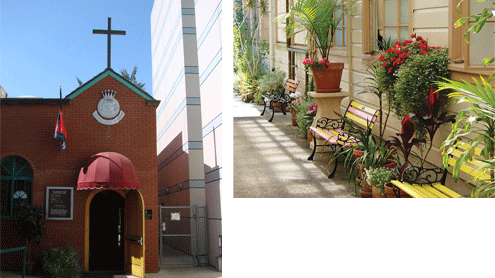

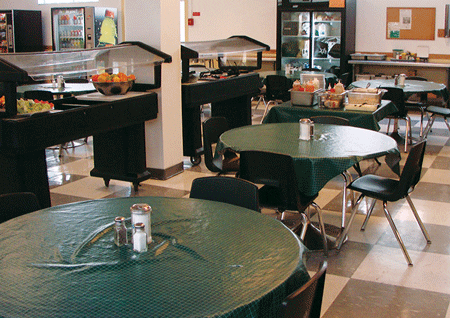
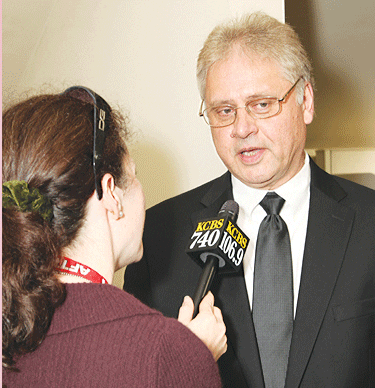
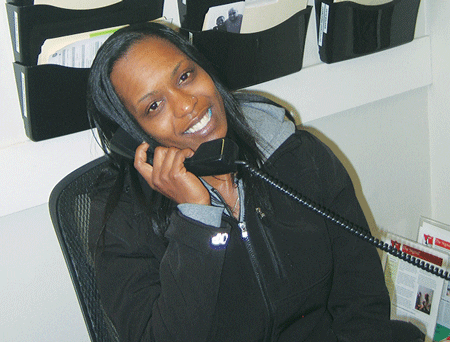


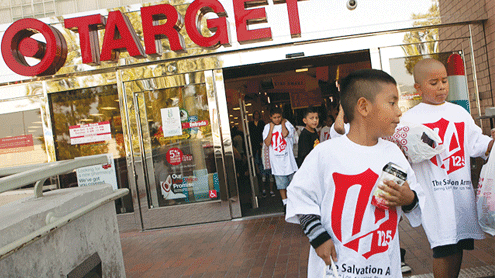
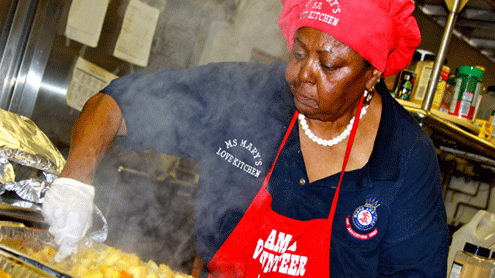
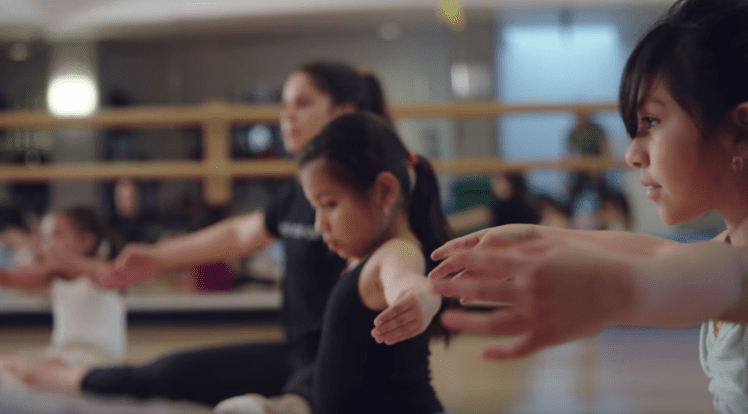
Thank You Harbor Light Center & to The Lighthouse Corps. November 6, 2012
26 years clean, sober & in Christ. God Bless.
It was nice to read your note Mari and to read that you are doing well.
God bless you!